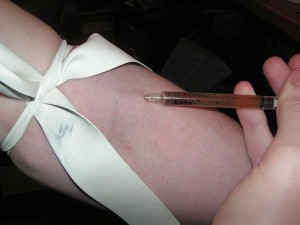The New Hampshire Division of Public Health Services (NH DPHS) issued a health alert after learning of four cases of invasive Group A Streptococcal bacteremia, all males, and all active injection heroin users from Southern/Central New Hampshire, who presented to healthcare in the last 10 days.

Health officials say it is unclear if these cases are connected; however, injection drug use is a risk factor for invasive bacterial infections, including Group A Streptococcus. The investigation is ongoing.
Beth Daly, Chief of the Bureau of Infectious Disease at DPHS says law enforcement has been informed of the investigation.
The most common disease caused by Streptococcus pyogenes is pharyngitis, or strep throat. Strep throat is very common in school-aged children, particularly in the winter and spring months. Untreated strep throat can lead to more serious complications like rheumatic fever; however, this is relatively uncommon.
It is also a cause of several skin infections such as impetigo and cellulitis. Impetigo is a characterized by a crusty lesion frequently found on the mouth area. Cellulitis typically occurs after a wound or burn where the bacteria enters and spread though the skin and lower tissues.
More serious, potentially life-threatening infections caused by Streptococcus pyogenes include necrotizing fasciitis (commonly called flesh-eating bacteria) and toxic shock syndrome. In addition, Streptococcus pyogenes can cause scarlet fever, septicemia and pneumonia. The death of Muppets creator Jim Henson was a result of an infection with Streptococcus pyogenes.
Penicillin is still the drug of choice for treating Streptococcus pyogenes infections. In cases when a person is penicillin allergic, erythromycin is an alternative treatment.
Related:
- Outbreak onboard the Adonia sickens 25 passengers and crew
- Impetigo: Treatment, control and prevention
- Lyme disease not found in Australia despite advocacy groups claims



One thought on “New Hampshire: Invasive Group A Strep cluster linked to heroin use”